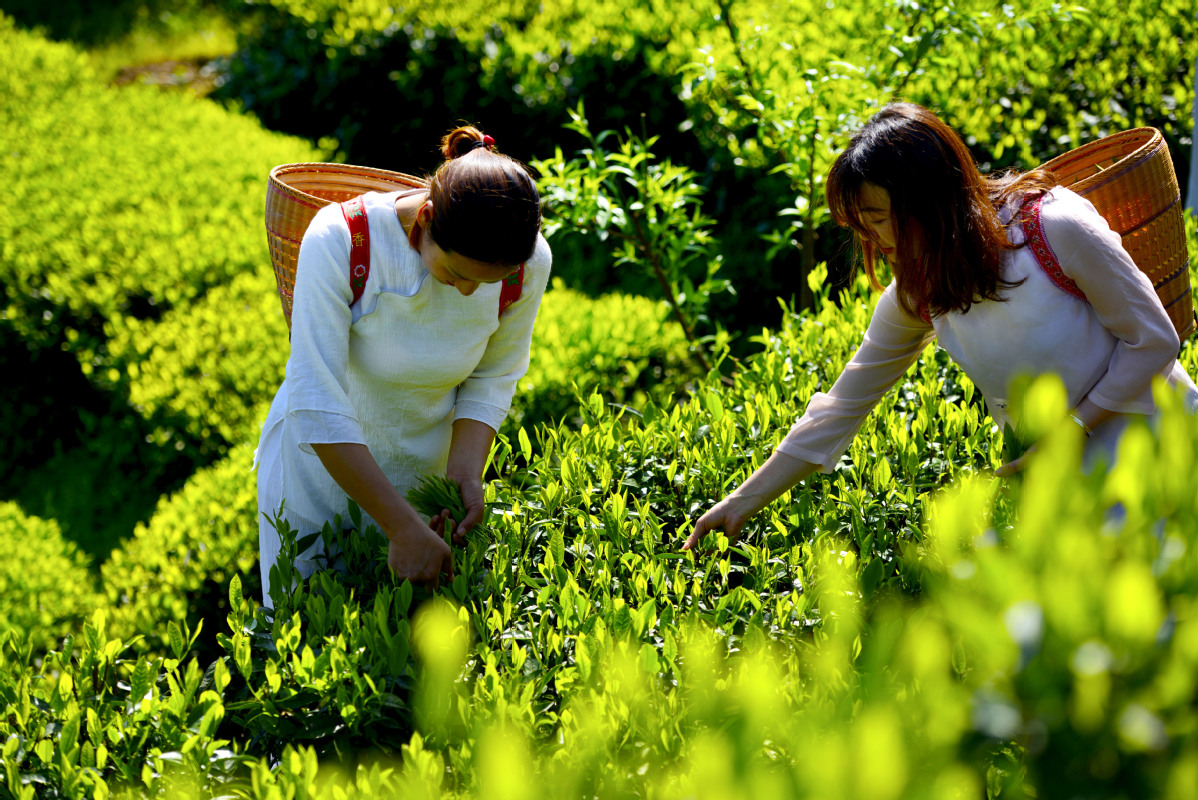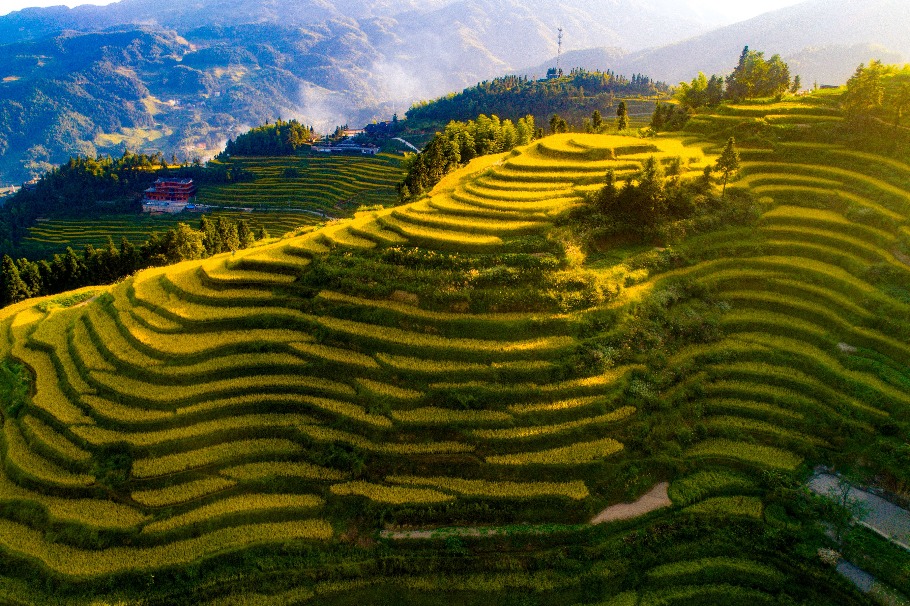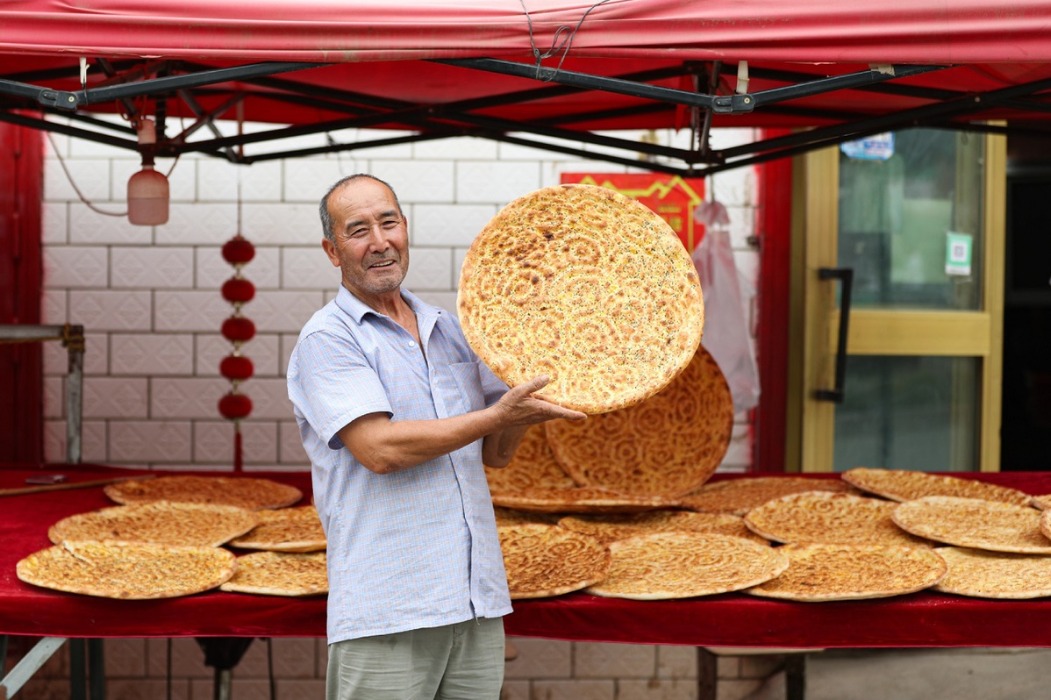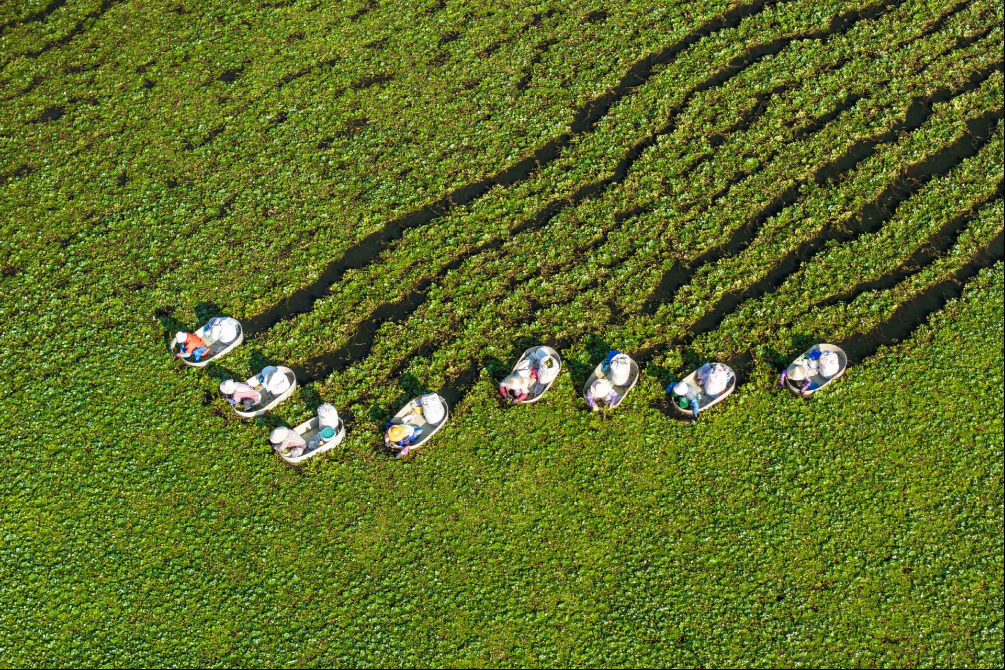Dark tea vitalizes rural life in Hunan village


Farmers were busy picking tea leaves in Tianzhuang village, Anhua county, Hunan province, this month. Chatting and laughing, they looked small among the lush, terraced fields, submerged in green.
The leaves they picked will be processed into dark tea after close to a dozen complex procedures, including spreading, heating, kneading, fermenting and drying. While the color of the leaves turns dark, the fresh aroma also becomes a strong, pure fragrance when it rises from a cup of glowing red tea.
The transformation from fresh leaves to ready-to-sell products generally takes five to 12 months, based on the different requirements of subcategories. Over the last 1,000 years, the manufacturing process of Anhua dark tea has been passed down from generation to generation, and it was named a national intangible cultural heritage in 2008.
A major place of origin for Chinese dark tea, Anhua produced 85,000 metric tons last year, with an output value of 23 billion yuan ($3.5 billion), according to the county government. Its products are sold worldwide.
In 2019, Hunan released a plan to construct characteristic agricultural towns by offering preferential policies in land use, finance and human resources. It wanted to drive development of rural areas under the framework of rural vitalization. Tianzhuang was one of 15 places selected for the program.
It has now developed a tea-related industrial chain from production and sales, agricultural scientific research and healthcare, to tea-related culture and the ecotourism industry.
Huang Wei, a resident of Yiyang, Hunan, visited Tianzhuang during the Tomb Sweeping Day holiday early this month. He said his family enjoyed tea, cured pork and experienced an idyllic life there.
"I like tea, and I want to experience tea culture in nature with my family," he said. "The picturesque scenery with blooming flowers and tea trees offered a visual feast."
Anhua welcomed 26,000 tourist trips during the holiday, reaping tourism revenue of 25.2 million yuan, according to the county government.
The booming tea businesses also benefit farmers. More than 100,000 people from poor families in Anhua have escaped poverty by joining tea-related industries.
Jiang Tongxing, 65, formerly a poor farmer in Tianzhuang, said his family's income used to be less than 10,000 yuan a year, and it relied on government subsidies. After construction of the characteristic agricultural town started, farmers were encouraged to make full use of land to plant tea and to join newly established companies there. Jiang got a job and his family's annual income has reached about 20,000 yuan.
Huang Yansong, in his 20s, returned to the village after graduating from a university in Beijing. He said contributing to the dark tea industry in his hometown is more meaningful than working in big cities.
"I visited a classmate in Beijing whose father treated me with tea he had kept for years. I was surprised to find the tea was from my hometown. I felt proud," he said.
Developing industries in rural areas based on their special resources is an important measure in realizing the country's rural vitalization strategy, according to the central rural work conference held in Beijing in December.
To improve brand awareness, the county government innovated by producing more high value-added commodities, including tea-sourced snacks, beverages and cosmetics. Anhua also built the country's first dark tea vocational school and dark tea research institute.
"By investing more in technology, we plan to promote large-scale planting, improve processing efficiency and innovate more new products," Liu Yonghui, the county's Party secretary, said.
Zhu Youfang contributed to this story.
- Nation honors fallen soldiers returned from South Korea
- Xi's vision for better global governance seeks to build a fairer world
- Yuksak Xijaat: Celebrating unity and heritage through art
- China, Latin America deepen ties at Wuxi forum
- Draft regulation boosts personal data protection
- Officials hail safer country under legislation





































